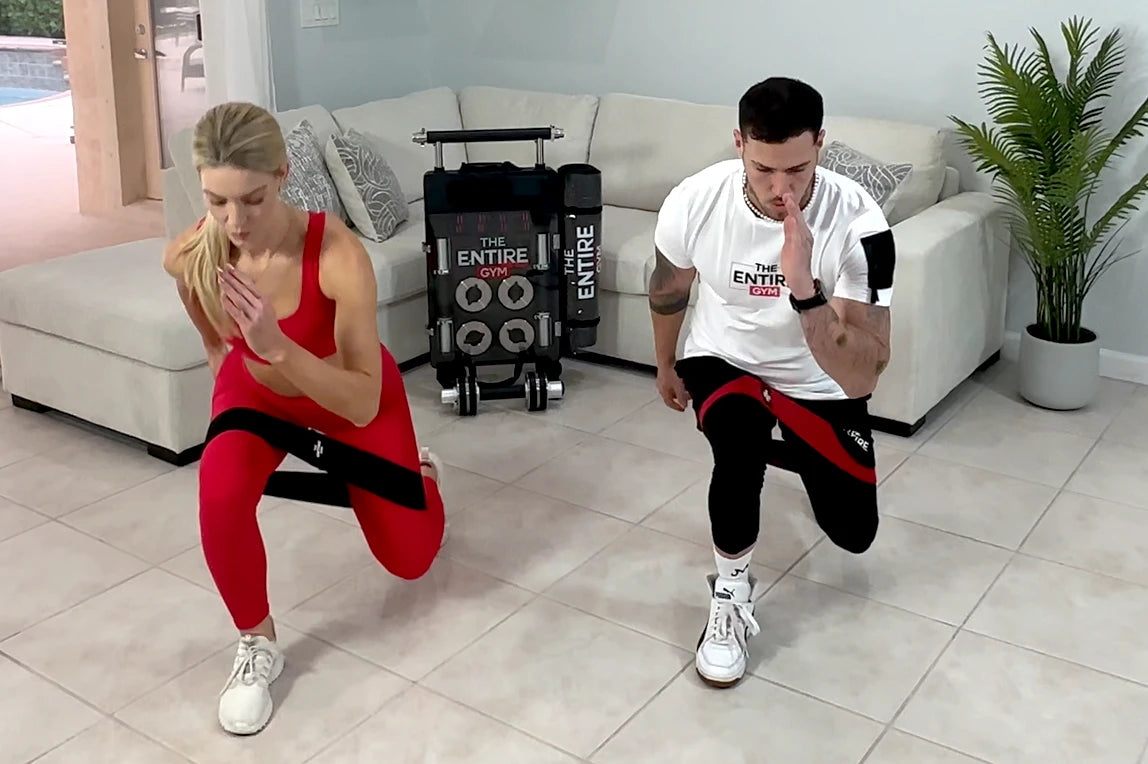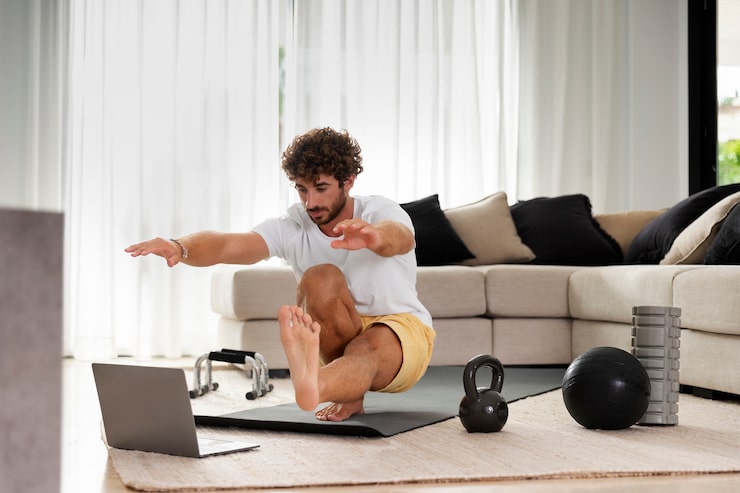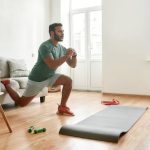How to Start Working Out at Home: A Beginner’s Guide

It is beneficial to remain occupied. However, not everyone has access to the gym or makes time to keep healthy. What’s the best part? You do not need expensive equipment or memberships. It is possible to get stronger, more flexible, and full of energy at home. This guide shows beginners how to work out at home effectively and stay consistent.
Why Exercise at Home?
People are working out at home more than ever for excellent reasons. It saves time, money, and travel. Not having to cope with packed gyms or lengthy commutes lets you adjust your routine on your own terms.
- Safety: Try new exercises without fear.
- Flexibility: Work out morning or night.
- Customized plans: Do the exercises you like and improve gradually.
- Begin stress-free: No pressure of gym crowds.
Step 1: Set Objectives
Consider what you want to accomplish. Goals determine your strategy:
- Yoga and stretching → flexibility and calm.
- Push-ups, squats → build strength.
- Jumping jacks → burn calories and lose weight.
Step 2: Make Space
- A mat, a cushion, or the floor will work.
- Keep resistance bands, a jump rope, or a pull-up bar nearby if you have them.
Step 3: Begin Small
Start with 10–20-minute sessions to avoid burnout and reduce injury risk:
- Warm up (3 minutes)
- 5–10 push-ups
- 10–12 squats
- Plank (20–30 seconds)
- 30 seconds of jumping jacks
- Cool down with 2 minutes of stretching
Step 4: Get by With What You’ve Got
You don’t need expensive tools to start working out at home. Everyday items can double as equipment:
- Water bottles as weights
- Chairs for tricep dips or step-ups
- Towels for stretching
🏋️ Upgrade Your Home Workouts

Want to take your fitness to the next level without losing space? Try the Foldable Home Gym Kit — a complete solution for strength and cardio that fits right into small homes.
Step 5: Be Consistent
Consistency beats intensity. Aim for 3–4 short sessions per week and set reminders in your calendar to stay on track.
Step 6: Change Things Up
- Monday: Strength training
- Wednesday: Cardio (dance, rope, jog)
- Friday: Stretching or yoga
Step 7: Track Progress
Keep a simple log of workouts, reps, and time. Progress motivates you and shows small improvements, like doing 12 push-ups by week four instead of week one.
Step 8: Warm Up and Cool Down
Never skip these. A 5-minute warm-up prevents injury, while light stretches afterward keep muscles flexible.
Step 9: Healthy Eating
Pair exercise with balanced meals: whole grains, fruits, vegetables, nuts, and lean proteins. Hydrate before and after workouts.
Step 10: Make It Enjoyable
Choose activities you enjoy — dancing, yoga, rope skipping. Fun keeps you motivated and consistent.
Step 11: Common Mistakes to Avoid
- Skipping warm-ups and cool-downs
- Comparing yourself to others
- Overtraining
Final Thoughts
It’s easier than you think to start working out at home as a beginner. No need to join a gym — small, consistent steps will build strength, energy, and confidence over time. Stay consistent, keep it fun, and make fitness a natural part of your lifestyle.



